Afghanistan aid: Donors promise $15.2bn in Brussels
- Published
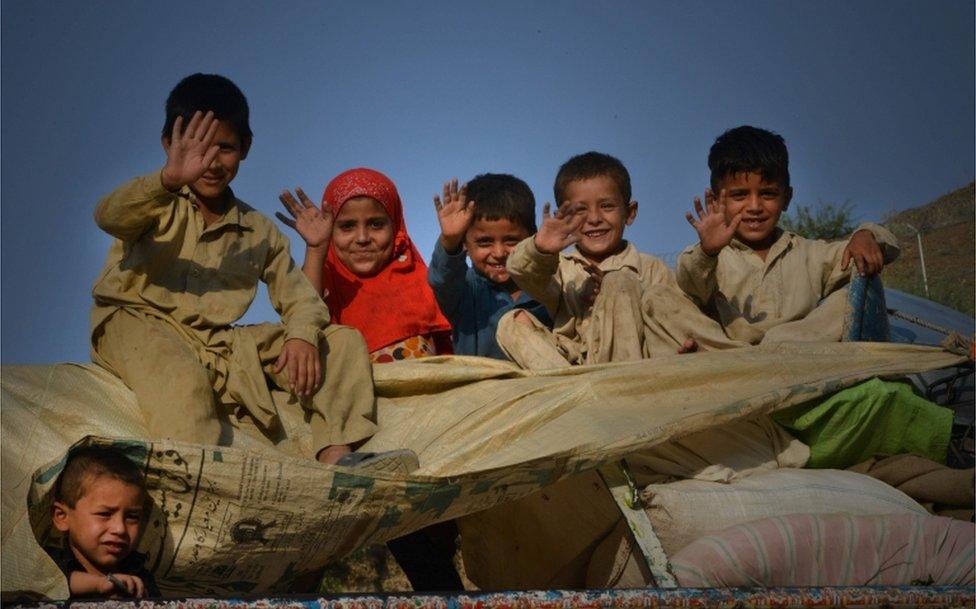
Afghanistan is still reliant on foreign help, 15 years after the Taliban were ousted
International donors have pledged $15.2bn (€13.5bn ; £11.9bn) in aid to help Afghanistan until 2020.
Over 70 countries attended the talks in Brussels, hosted by the EU.
Closing the meeting, European Commissioner for International Development Neven Mimica called the sum "a remarkable, impressive amount".
"Now is not the time to reduce our ambition or our investment in the people of Afghanistan," he added.
The amount pledged is only slightly less than the $4bn a year that the international community promised at the last Afghanistan conference in Tokyo in 2012.
Ahead of the meeting, the overseas countries were expected to pledge around $3bn in aid a year.
'We are helpless: Trapped by the Taliban in Kunduz
Afghanistan will be asked to do more to tackle corruption and to take back tens of thousands of failed asylum seekers.
The country faces a resurgent Taliban and remains reliant on foreign help, 15 years after the militants were ousted.
"We're buying four more years for Afghanistan," said EU special representative Franz-Michael Mellbin.
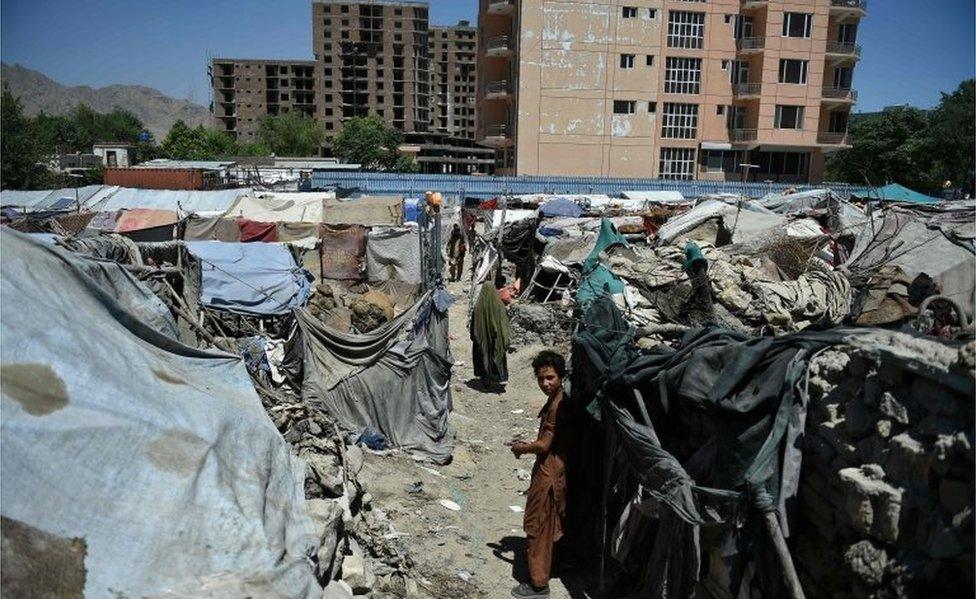
Many Afghans live in abject conditions and with little hope things will improve

Read more:

Afghan President Ashraf Ghani told the conference that Afghanistan was making progress on the economy, corruption and human rights but needed constructive international support to see the changes through.
"Afghans can make peace, we will make peace, we are committed to constructive politics, not destructive politics," he said.
US Secretary of State John Kerry urged the Taliban to make an "honourable" peace with Kabul.
He said the militant group should follow the example of Gulbuddin Hekmatyar, the notorious Afghan warlord designated a "global terrorist" by the US, who signed a peace deal with the Afghan government in September.
"This is a model for what might be possible," Mr Kerry added.
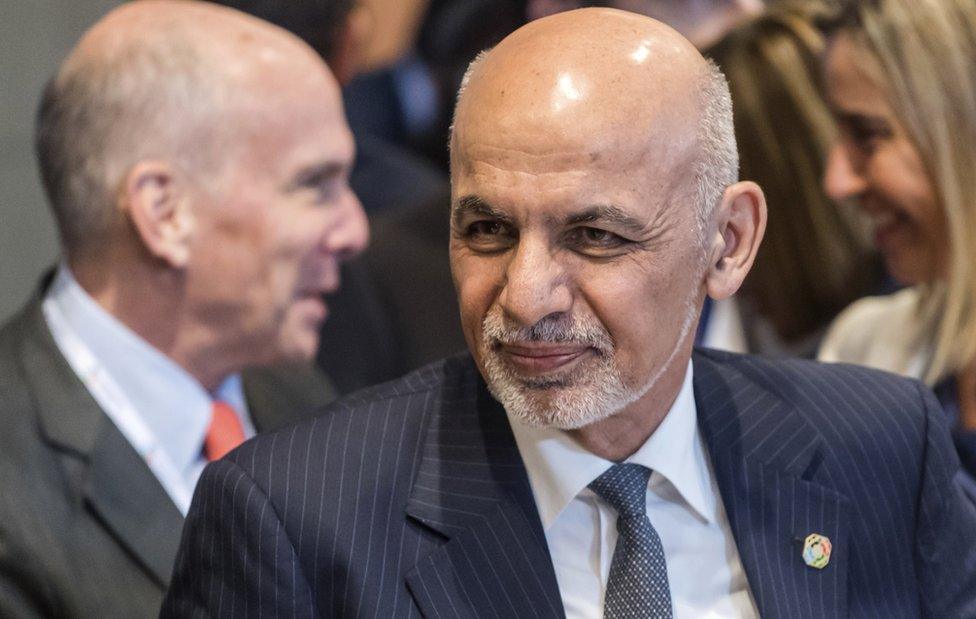
Afghan President Ashraf Ghani told the conference that Afghans are "committed to constructive politics"
The EU is promising Afghanistan $1.5bn annually and has signed a deal for Kabul to take back Afghans who fail in their bid for asylum. Both sides deny the deal is a condition for new aid.
Afghans make up the second largest group of asylum seekers in Europe, after Syrians.
The BBC's Lyse Doucet in Brussels says recent Taliban advances on the battlefield will only harden the determination of many Afghans to seek a better life elsewhere.

Analysis by Lyse Doucet, BBC Chief International Correspondent
"We are with you for the long run" was the world's promise to Afghanistan in 2001. Aid still hasn't stopped.
That's partly because the same worries are still there. President Ghani has a vision for Afghanistan major donors can believe in.
But they - and Afghans - still need convincing it can be achieved by him in the Afghanistan of today.
For all the advances since 2001, there's rampant corruption, political infighting, and a battle against the Taliban taking a huge number of Afghan lives.
The unexpectedly high pledges seem to underline a recognition of the price Afghans, their neighbours, and the world beyond would pay if the Taliban gained ground, and Afghanistan sank into greater poverty and despair.
A record number of Afghans are already fleeing to Europe. This money is also meant to help create conditions to convince Afghans to stay, including the tens of thousands who will now be sent back under another deal struck in Brussels this week.

Taliban attacks this week on the cities of Kunduz in the north and Lashkar Gah in the south have underlined how fragile the security and development gains of recent years remain, despite all the money spent.
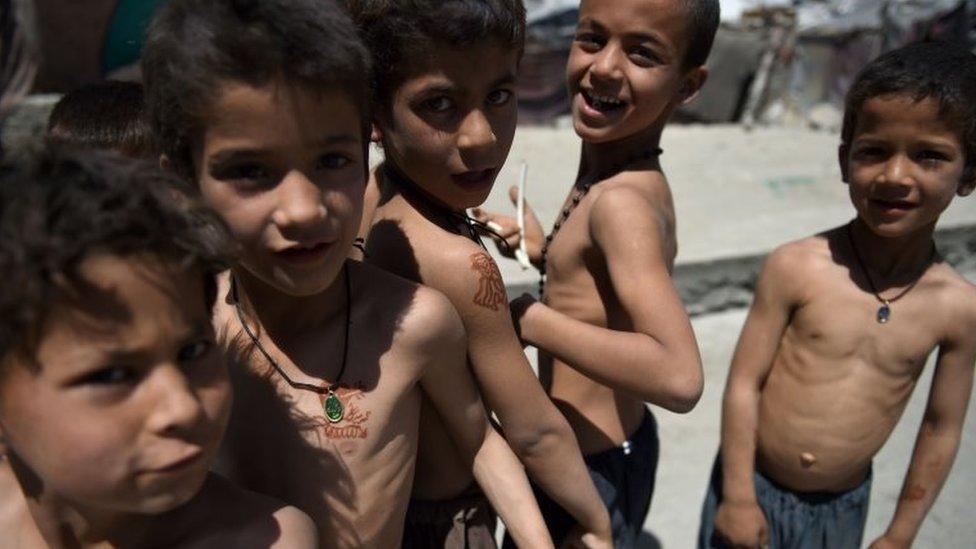
Afghanistan has hundreds of thousands of refugees - and many head abroad for better lives
Hasn't Afghanistan already had billions in aid?
The United States and other international donors have pumped about $130bn into the country since 2002.
Efforts to rebuild after years of war began after US-led forces ousted the Taliban from power following the 9/11 attacks.
The figure is comparable to the Marshall Plan, external, a US initiative to rebuild a devastated Europe after World War Two, although the results have been much more limited.
Most of the money spent in Afghanistan has come from the US (about $115bn) - and official figures show that more than half of that was spent on security, external.
Nato pulled out combat forces in 2014 and the Taliban are now resurgent in many areas, prompting fears that hard-won, costly gains are at risk.
What did the aid achieve?
Fifteen years after the Taliban were toppled, Afghanistan still cannot survive without significant international support.
Despite all the money that's been poured in, it remains one of the poorest countries on earth, with 80% of its budget financed by aid.
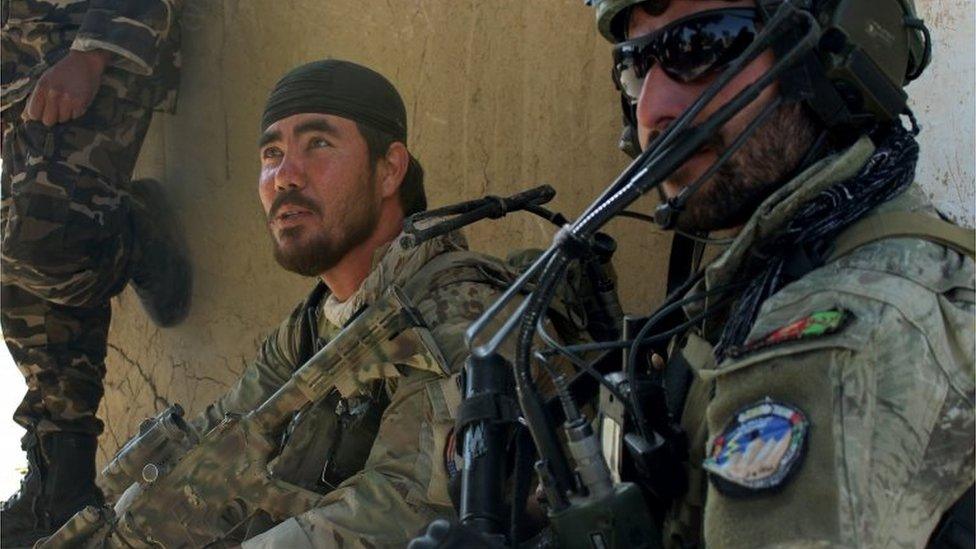
Afghan forces have been struggling to keep the Taliban at bay in Kunduz
The optimism of the early post-Taliban years - when new schools and hospitals were being built and Afghan refugees were returning - has been replaced in some quarters by donor fatigue and more and more questions about where the money will end up.
Major contributors are now indicating they expect to see greater Afghan success in tackling problems such as corruption and the lucrative narcotics trade, as well as progress on asylum seekers.
A more prosperous Afghanistan could mean fewer refugees in Europe - but hopes the country could become self-reliant one day seem many years away.
How bad is the fighting?
It is so serious that one of the main cities in the north, Kunduz, nearly fell to the militants again this week, a year after they briefly captured it in what was a major security embarrassment.
Afghan forces battled the Taliban for a third day in Kunduz on Wednesday, amid reports that food is running short and scores have fled the city.
Meanwhile in Kabul, a suicide bomber targeted a minibus carrying government officials, wounding four people, a day after a US soldier was killed by a bomb in the east.
In the southern province of Helmand, the Taliban have captured the administrative headquarters of Khan Nishin district, and are massed outside the provincial capital, Lashkar Gah.
Government troops were reported to be resisting their advance there, and in parts of the central province of Uruzgan, where fighting has also broken out.